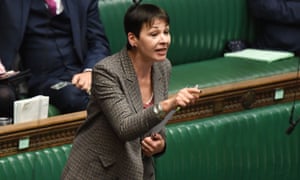Parliament’s pension fund has made record investments in renewable energy and cut its exposure to fossil fuel companies to bring MPs’ pensions in line with the government’s climate action targets.
A report from the GBP700m pension fund showed that almost a third is now being invested in low carbon and environmentally sustainable funds following calls from hundreds of MPs to align the fund with the government’s legally binding climate commitments.
The decision by the pension fund’s trustees to back a push for greener investment, first revealed by the Guardian last year, has resulted in renewable energy infrastructure investments making up 5% of the fund for the first time.
The move is a victory for the 360 serving and former MPs who have been pushing for the pension fund’s investments to fall in line with the government’s climate agenda.
The campaign was supported by all of the Labour party’s leadership candidates, the leaders of the Liberal Democrats and the SNP, and senior Conservatives including Guy Opperman, the minister for pensions and financial inclusion.
However, the pension’s trustees have stopped short of divesting entirely from fossil fuel companies and retain multimillion-pound investments in the oil companies Royal Dutch Shell and BP. The annual report showed that the fund has decreased its investment in BP by almost two-thirds in the past year, to GBP4.4m, and cut its holdings in Shell by a quarter, to GBP8m.

Caroline Lucas, the Green party MP behind the campaign, said the fund needs to fall in line with parliament’s decision last year to declare a climate emergency by divesting from all fossil fuels.
“Investing in clean energy is clearly the right thing to do, financially and for the future of our planet, so I’m glad the Parliamentary Pension Fund is doing this. But it has to also stop investing in Shell and BP,” she said.
“These investments cannot be justified on ethical, environmental or financial grounds, and they undermine MPs’ credibility in addressing the climate emergency. They have to stop.”
The trustees wrote to Lucas last year, in correspondence seen by the Guardian, to confirm that the fund would reconsider its investment strategy but adding that it may choose to remain investors in oil companies in order to have a “voice” at investor meetings and shareholder votes.